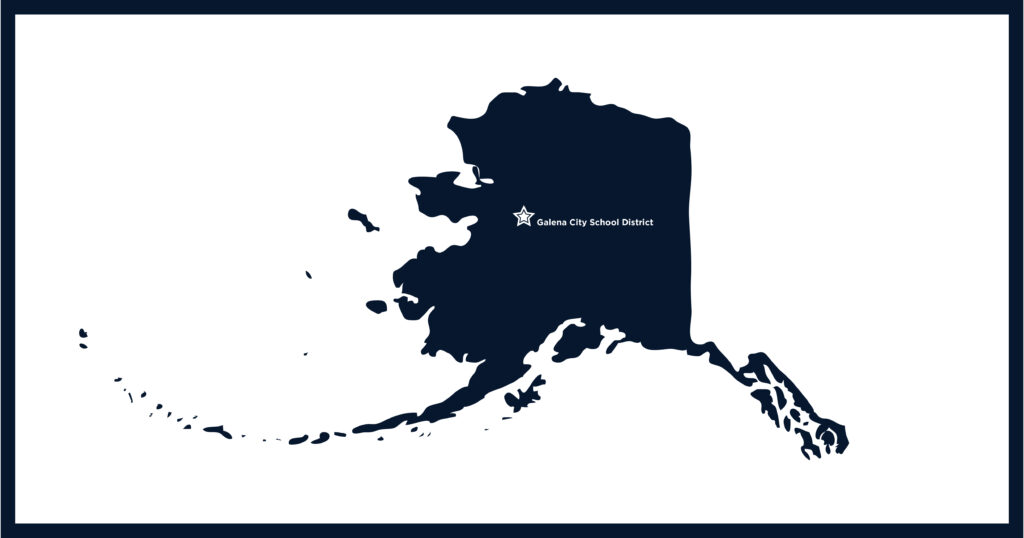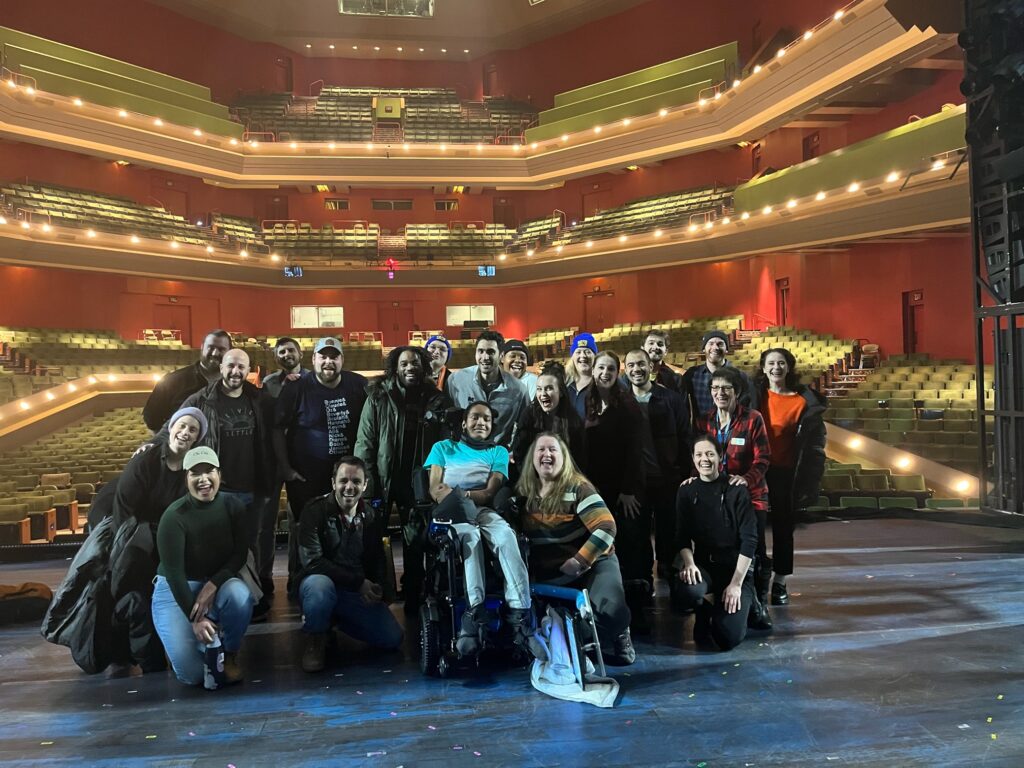Education is rapidly changing and requires connectivity more than ever. From remote learning to computer-based lessons, educators and students need reliable and accessible internet. At GCI, we are committed to bringing connectivity to Alaskans across the state, including the most rural parts. We work hard to understand the unique demands of the communities we serve and their educational needs.
Recently, Jason Tomberlin, Senior Director of GCI Education, sat down for a conversation about connectivity for rural schools with Jason R. Johnson, Galena City School District Superintendent and Heath Day, GCSD Director of Talent Relations & Recruitment, to discuss the importance of reliable connections for rural Alaska and education.
Can you tell us about the Galena City School District?
The Galena City School District is a three-legged district with 7,500 students. The district includes the Galena Interior Learning Academy which serves students in grades 9-12 who come from throughout the state of Alaska in a residential school setting. There is a school for the local community students. Lastly, there is the IDEA homeschool program. Students have the option to take classes from any of the three schools, giving them greater access to various formats of learning.

What are the current technological capabilities and limitations within your school district?
Johnson: Connectivity and speed. That’s where I think GCI has been so great for us and has been willing to help us out so much.
We frequently see bad weather and high costs for most everything in rural Alaska. Our limitations are really on a cost basis. How can we do more with less? How can we combat the weather? How are we able to connect with our sites across the state? And for our families that do virtual education, how can they connect the best?
We’ve got to be able to communicate across the state to be successful. We have students from the North Slope all the way to the Aleutians, and to be able to connect with those families and share an internet platform like this to communicate face to face is so valuable.
For us, that’s one of the key points. Having that reliable connectivity with our parents and families, it’s vital to our kids’ happiness out here. Some of our kids don’t see their parents for six, seven months out of the year. If we can reliably let them know they have time for those relationships, those things are so vital to being happy.
Are there any unique environmental or weather-related factors to consider for maintaining connectivity?
Johnson: The environment is challenging. Maybe more importantly is when things don’t go well, or things break, how quickly can we get them back on? And I think that’s one of the strengths of GCI and why we appreciate that partnership. When we have questions, they’ve actually flown their leadership team to the site rather than just making emails or calls. They came and looked at the problem themselves, which is so important.
Day: When you talk about the geography, people know Alaska is big, people think about it. But it’s different to really experience it. To get to Galena it’s 250 miles west of Fairbanks.
So, fly 200+ miles from Anchorage to get to Fairbanks, then get another plane another 250 miles to get to Galena. Then you think about the statewide network through IDEA and all the offices and the families, just how spread out everybody is. When you’re so isolated, having the connectivity that’s there and having the redundant paths and the redundant offerings of how we deliver those services is big. I think Galena experiences that probably more than any of our other customers because of that statewide setup that they have achieved.
Tomberlin: I want to address the technologies that are in place to ensure the GCSD network stays online. I think the key to that network’s stability is diversity. There are multiple pathways for the services that they use to travel across the network. For example, when you’re on a river, there’s an upstream and downstream. And the same thing happens with our network. Our network runs upriver and downriver and keeps a connection back to the rest of the world through both paths.

Alaska student gets special backstage access with Broadway Alaska
And because of that, if it gets cut off in one direction, the other path is still there. And I think the reliability that you speak about is super important. And we’ve seen elsewhere in the world where single path networks fall apart. It’s not that they can’t be fixed, it just takes time. The time to repair, to get services back up, is very noticeable.
There’s another facet of that within the district, the three separate entities having separate networks. Sometimes the things that impact IDEA won’t impact what’s happening in Galena because it’s set up as a separate network. That extra layer of security and redundancy is helpful, even when the weather does affect something in one area or another.
What do you find to be the most normal, consistent complaint you get for technology?
Johnson: I think everyone in our district wants things to move faster, and that’s probably not unlike any other place in the world. Our students and staff want videos to play faster. They want the internet to load faster. And I think from an instructional standpoint, just having that reliability that when you hit play, something will function as necessary. When we ask the system to do something, if it performs, we would say that’s successful.
What value do you place on having Alaska-based tech support, and what does that support look like?
Johnson: I think it’s invaluable to have Alaska-based tech support. It’s clear that no one outside really understands the environment that we’re faced with and the challenges and barriers we have in rural Alaska.
We appreciate the fact that we can pick up the phone and have someone that understands when it’s 35 below or when it’s five feet of snow. We’ve just not seen that reliability outside of the state. And GCI cares on a personal level, not just a professional level. And I think that’s what makes them so impactful to work with.
Tomberlin: A big piece of this is having folks in Alaska who care about Alaska, care about rural Alaska. There is a big difference. Having folks who are happy and excited to go travel to Galena and do support means that they have more of an investment in that customer, and that plays a big role in their success. If you care about something, you work harder to do a good job. We pride ourselves on having teams that care, that want to be there, want to be a part of it. And when we get an opportunity to go travel and see our customers, we jump on it.
Johnson: What I can tell you is that everyone who works with our teams from GCI knows our first names. We’re not help tickets, we’re people. And often those are conversations from a personal side first and then we get down to the professional side and to us that means a lot. It’s a high-stress environment when things aren’t working, but GCI has had a great way to temper that and let us know that it’s going to be okay, which we can in turn let our staff know we’re going to have a solution.
How often does GCSD staff interact with technical support from GCI?
Day: From a tech help desk standpoint, there is a constant thread of communication back and forth. It’s a regular check in of how things are going, what’s happening, what’s functioning, what’s not.
Then if something quits working and there is a problem, it transitions from that back-and-forth text or chat thread to face-to-face video conferencing to figure out the problem and getting it solved. You’ve got that foundation to build from. It’s not, ”Hey, I haven’t talked to you in months and now there’s something wrong.” There’s that regular communication.
It makes the stressful times less stressful when you’re on the same team.
Tomberlin: You know, most of the members of the Galena team, they have my cell phone number. They have our lead tech numbers. They know how to get a hold of us.
They reach out when they need to. We’re responsive to them. And it all goes back to because we are, we’re partners, we’re a team. We care about each other. We want each other to be successful. We work hard to make sure that what Galena needs is provided, be it a better network, better performance, better reliability, whatever it is, we want to be there to provide that service to them.